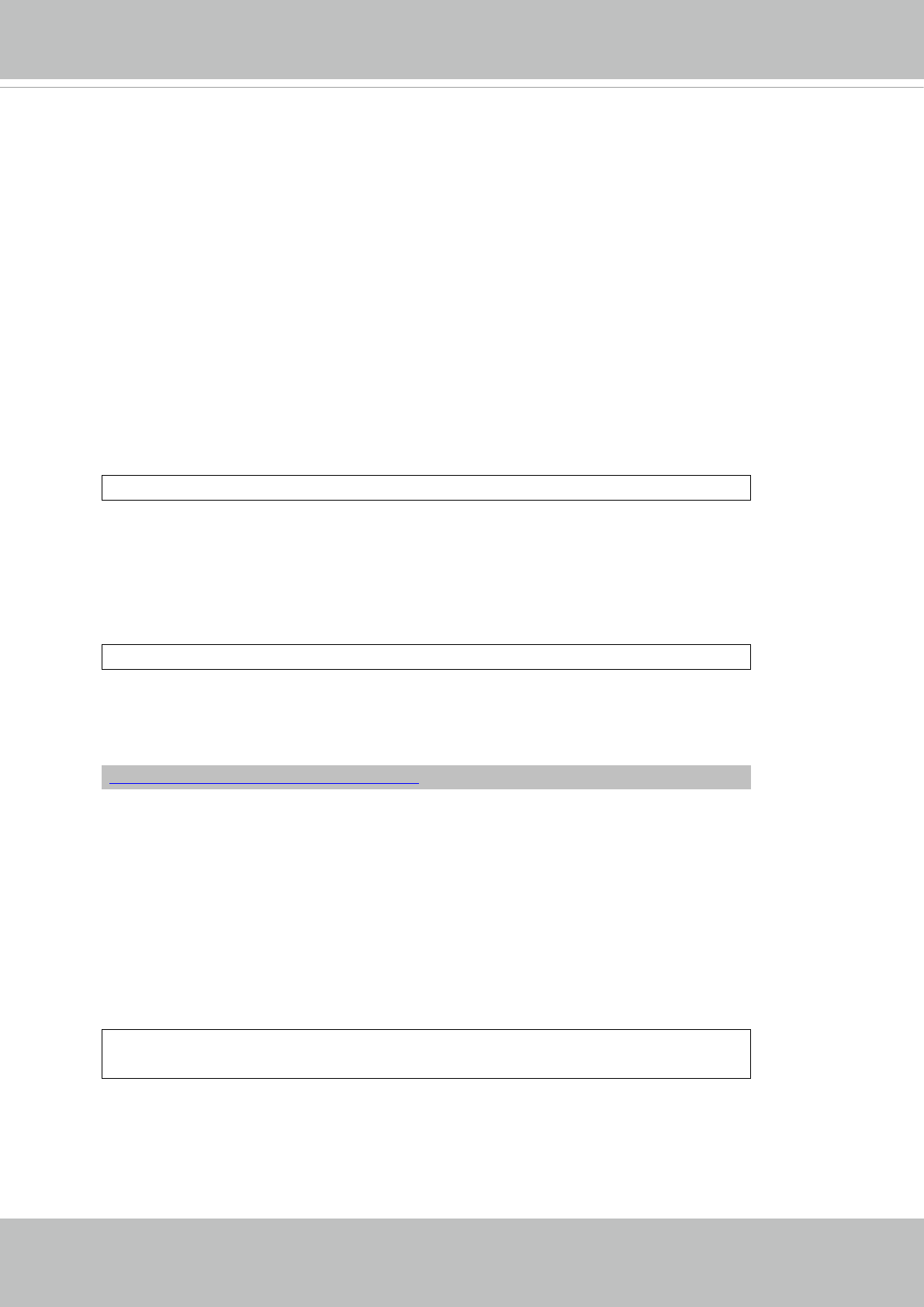
VIVOTEK
User's Manual - 115
2. Style Convention
In URL syntax and in descriptions of CGI parameters, a text within angle brackets denotes a content that is to be
replaced with either a value or a string. When replacing the text string, the angle brackets shall also be replaced.
An example of this is the description of the name for the server, denoted with <servername> in the URL syntax
description below, which is replaced with the string myserver in the URL syntax example, also below.
URL syntax is written with the word “Syntax:" written in bold face followed by a box with the reference syntax as
seen below. The name of the server is written as <servername>. This is intended to be replaced with the name of
the actual server. This can either be a name, e.g., "mywebcam" or "thecam.adomain.net" or the associated IP
number for the server, e.g., 192.168.0.220.
Special notes will be marked in RED.
Syntax:
http://<servername>/cgi-bin/viewer/video.jpg
Description of returned data is written with "Return:" in bold face followed by the returned data shown in a box.
All data is returned as HTTP formatted, i.e., starting with the string HTTP and line separated with a Carriage Return
and Line Feed (CRLF) printed as \r\n.
Return:
HTTP/1.0 <HTTP code> <HTTP text>\r\n
URL syntax examples are written with "Example:" in bold face followed by a short description and a light grey box
with the example.
Example: Request a single snapshot image
http://mywebserver/cgi-bin/viewer/video.jpg
3. General CGI URL Syntax and Parameters
CGI parameters are written in lower-case and as one word without any underscores or other separators. When the
CGI request includes internal camera parameters, these parameters must be written exactly as they are named in
the camera or video server. The CGIs are organized in functionally-related directories under the cgi-bin directory.
The file extension .cgi is required.
Syntax:
http://<servername>/cgi-bin/<subdir>[/<subdir>...]/<cgi>.<ext>
[?<parameter>=<value>[&<parameter>=<value>...]]
Example: Set digital output #1 to active


















